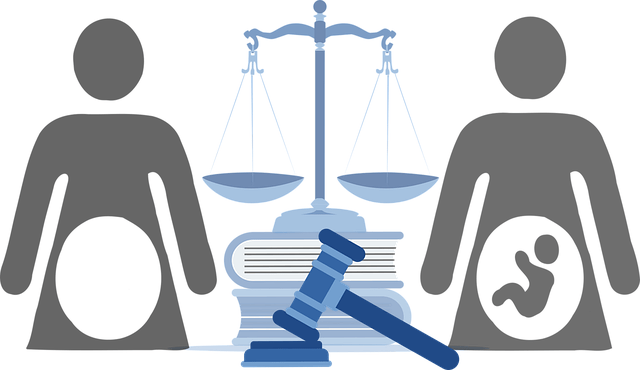Women’s Right to Terminate pregnancy
The issue of a woman’s right to terminate pregnancy has been a subject of intense debate and discussion for many years. It is a complex and deeply personal decision that touches upon moral, ethical, and political dimensions. The right to choose is not just about a medical procedure; it’s about autonomy, bodily sovereignty, and the fundamental principle of individual freedom.
Contents
Historical Perspective
The fight for a woman’s right to choose can be traced back to the mid-20th century when the concept of reproductive rights began to take root in Western societies. Prior to that, women’s access to safe and legal abortion was severely restricted or prohibited in many places. As the feminist movement gained momentum, so did the push for reproductive freedom.
India’s journey towards recognizing and protecting women’s right to choose has been marked by several pivotal moments in history. The Medical Termination of Pregnancy (MTP) Act, enacted in 1971, was a groundbreaking step in the right direction. The Act allowed women to access safe abortions under certain conditions, with the approval of medical professionals. This landmark legislation aimed to reduce the number of unsafe and illegal abortions, protecting women’s health and lives.
The Soviet Union under Vladimir Lenin is recognized as the first modern country to legalize induced elective abortion care. In the twentieth century China used induced abortion as part of a “one-child policy” birth control campaign in an effort to slow population growth.
Right to Terminate pregnancy
In Justice K.S. Puttaswamy (Retd.) vs. the Union Of India And Others (2017), the court recognized the constitutional right of women to make reproductive choices, as a part of personal liberty under Article 21 of the Indian Constitution, which, despite laying a robust jurisprudence on reproductive rights and the privacy of a woman, does not translate into a fundamental shift in power from the doctor to the woman seeking an abortion.
According to MTP act of 1971, there is upper limit of 24 weeks for terminating pregnancy under various condition and medical circumstances, further abortion would be considered as crime.
Though right to terminate pregnancy does not exist in the laws of nature but its access given by humanitarian ancient and modern practices on the basis of universal access of comprehensive healthy life
The Medical Termination of Pregnancy Act, 1971
- In a historic move to provide universal access reproductive health services, India amended the MTP Act 1971 to further empower women by providing comprehensive abortion care to all.
- The new Medical Termination of Pregnancy (Amendment) Act 2021 expands the access to safe and legal abortion services on therapeutic, eugenic, humanitarian and social grounds to ensure universal access to comprehensive care.
Under the law (section 3 of The medical termination of pregnancy Act 1971), the doctor can perform an abortion in the following situations: if the pregnancy would be harmful to your life or physical or mental health. The doctor will need to consider your circumstances to figure out if the pregnancy will harm your mental health. They also need to look at your future (as a reasonable person would) to figure out the effects of the pregnancy.
If there is good chance that the child would suffer from physical or mental abnormalities which would leave him or her seriously handicapped.
If the pregnancy has not exceeded 12 weeks (first trimester), only one doctor needs to be satisfied that the conditions have been fulfilled.
If the pregnancy has exceeded 12 weeks and is below 20 weeks (first trimester), two doctors need to be satisfied that the conditions have been fulfilled.
The gestation period does not matter if doctor feels that an immediate abortion must be conducted to save your life.
The doctor who determines if it is necessary to perform an abortion and performs it needs to be a ‘registered medical practitioner’ under the law.

Who can be punished for committing an illegal abortion?
- An abortion which does not fulfil the conditions is considered a crime under the general law on crimes in India.
- Abortion of under 4 to 5-month pregnancy – The punishment for getting an illegal abortion is jail time of up to 3 years and/or fine. Both you and your doctor are considered to have committed a crime unless it was done in good faith to save your life.
- Abortion of over 5-month pregnancy – If abortion takes place when you can sense the movement of the foetus, the punishment is higher. This is generally known as quickening and usually takes place between 17 and 20 weeks. Both you and your doctor can be punished with jail time of up to seven years and fine unless it was done in good faith to save your life.
- Abortion without your consent – If anyone else forces you to have an abortion or performs one without you agreeing to it, the punishment is jail time of up to 10 years and fine.
- Abortion resulting in death – If the patient dies because of a botched abortion or an abortion carried out by an unskilled person, the doctor who conducted the operation can be punished with jail time of up to 10 years and fine. If the abortion was conducted without the patient’s permission, the punishment is jail for life.
- Intentionally causing the death of a foetus can also be prosecuted under other provisions of the Indian Penal Code, 1860 under which the punishment can extend up to 10 years.
Source: Min of HFW / PRS
Discover more from Simplified UPSC
Subscribe to get the latest posts sent to your email.



